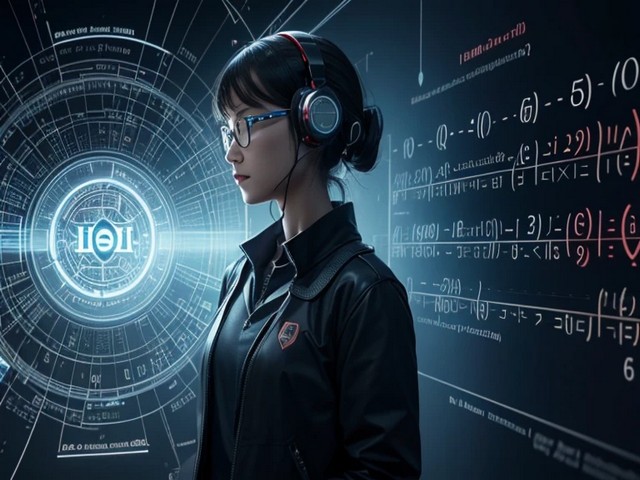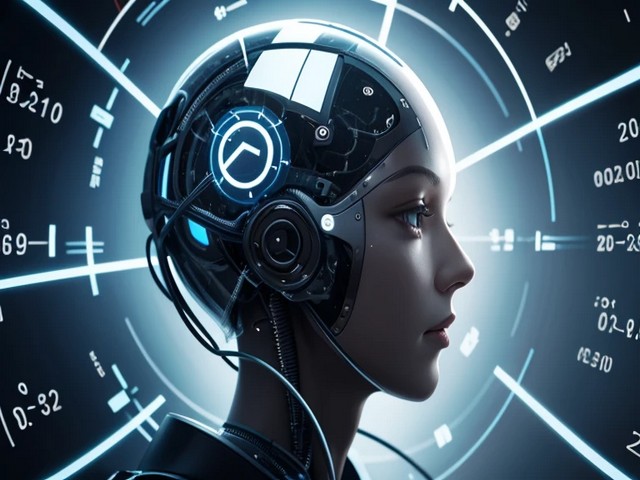
The field of Maths AI has come a long way in the course of the past several years, changing the view on efficient approach to solving a given mathematical problem and the way computations should be done. These AI systems utilize a variety of complex computations and advanced algorithms as well as machine learning models, which make it possible to solve several mathematical problems in a significantly faster and more efficient manner. Thus, this increase in technological competency brings up pertinent concerns about what the human mind would mean for mathematics in the future.
AI Outshining Human Mathematicians?
Current Maths AI has the capability of trouncing even the best brains in the solution of complex numerical equations. This leads to a controversial debate: Should humanity prepare for a world in which machines’ superiority matches their numbers and surpasses human intellect when it comes to math? The increasingly complex use of AI could in the future reduce the need for calculus and human reasoning capabilities with deep learning.
Beyond Calculation: The creative leap of a brand’s AI
However, in recent times, some of the newly developed Maths AI technologies go as far as developing some traces of creativity; they even start applying mathematical ideas and principles that are unimaginable to mankind. This new development poses the fundamental question of where exactly one ends and the other begins. Is it capable of creative thinking in mathematics or is it just like a human mimicking or reproducing results that are pathways of mathematics or logical computing?
The Ethical Dilemma
It is essential to point out that with the growth of Maths AI, there appears a set of ethical problems as well. Is it possible and reasonable to let machines complete such problems that, for a long time, have been considered to be exclusive to the superior mind of humankind? This has given rise to a feeling that with reliance on AI systems, future generations are likely to be deprived of basic thinking and problem-solving skills. Additionally, given that superior mathematical skills are to be vested in AI, there is a potential for there to be certain knowledge that is exclusively the preserve of AI, thus giving a certain amount of unfair advantage to the owners of such technologies.
Mathematics and the Human Personality in the Future
The rather alarming fact of the matter is that the use of Maths AI may drastically shift the dynamics of mathematical studies at both research and educational stages. This is why as AI penetrates ever more areas that have been previously considered to belong to the domain of human intellectual endeavours, we have to ask ourselves what it means for our growth. Will the new generation of mathematicians be co-workers with this artificial intelligence or will they become unemployed opponents of AI systems?

The Evolution of AI in Mathematics
For maths specifically, Maths AI is not simply a tool; it is the disruptor that has profoundly upended the method we use to solve mathematical problems. Traditionally, mathematics has been a field where human superior rationality ruled, but with the help of contemporary AI algorithms, such a paradigm is changing rapidly.
From Simple Calculations to Complex Theorems
Taking the novice example in history Maths AI started as a simple tool to perform basic arithmetic and has now developed into a machine to solve almost complex theorem. The early AI was restricted to carrying out simple arithmetic problems or simple problems in algebra. Still, the current AI is capable of solving complex calculus tasks, making high-level data analytics, and contributing to the creation of new proofs of mathematical theorems that were previously considered to be the achievement of the human absolute elite only.
AI Algorithms and Pattern Recognition
The technique of concept attention in Maths AI is based on the capacity to capture barely discernable relationships. Such algorithms can then comb through large amounts of data to find patterns and relations that can help establish advancements in mathematical discovery. It not only provides organization and time management aspects of an issue but also provides new areas and possibilities that can be explored that were not possible before.
Human Intellect vs. Machine Intelligence
The reality that people find troubling about Maths AI is the continuing discussion of whether people are smarter compared to devices. Sure, AI is capable of handling information at times and to a much greater extent than humans can, but it does not possess the heuristic capability inherent only in human intelligence. This of course poses questions about the future of mathematicians. Is AI going to replace human problem-solvers or is the invention going to act as a tool that is going to take human creative abilities to a new level?
Ethical and Philosophical Implications
First of all, the fast development of Maths AI also implies the creation of ethical and even philosophical issues. Who has the right to an AI-grown theorem, as it is not likely that an algorithm can be granted a patent? Is it possible to regard an AI-generated mathematical proof as trustworthy in case it does not include a human touch? They put into question such notions as intellectual work, and what it means to produce mathematics.
The Future of Mathematics with AI
Looking at the future, Maths AI appears to have vast development opportunities. Going at that rate, soon, Artificial intelligence could be credited with discovering new mathematical concepts. Thus, there is a need for addressing this issue, while keeping human intelligence as the main value of math development and using incredible opportunities of AI at the same time.

The Controversial Role of AI in Mathematical Discoveries
Maths AI has unquestionably and invariably transformed the scenario of mathematical investigation. However, this creates new disturbing questions on how artificial intelligence is rapidly advancing to outdo humans within the same fields. Although some people are rejoicing at the successes of AI systems, others are highly apprehensive.
AI vs. Human Intuition
Maths AI is not a match for a human’s intuition, and so the disagreement lies here. Some of the critiques originating from the traditional mathematicians include lack of creativity in AI which they say is a key factor needed in discovery. These opponents are convinced that human experience, nurtured over the years of hard work in an educational institution, cannot be compared with the machine’s decision-making and, therefore, should remain the basis for decision-making. Since AI advocates argue that these systems are capable of perceiving relationships and solving problems that are beyond the capacity of a human brain, mathematics, as an aspect of human intelligence is under threat.
Ethical Dilemmas
The considerations to be made concerning the ethical use of Maths AI are enormous. Mathematics races on and if AI is as capable as pro Maths Crunchers then the lesson here means that the future of Maths education and profession shall be a complex proposition. It is fear that the use of AI may water down the worth of human mathematicians and thereby trigger a downfall in the chase of mathematical acad Careers.
Dependence on AI Systems
Thus, the growing abilities of Maths AI can potentially raise the issue of dependency in the future. Currently when the AI systems develop even smarter we cannot guarantee that it will not lord over its creator. This dependency may one day get to a point that human mathematicians will not be in a position to verify or even comprehend the proofs that AI has derived, creating a paradox of having to rely on the machines’ lead in an area that was once regarded as the epitome of human intelligence.
Artificial Intelligence and the Future of Mathematics
Maths AI is an exciting thing to add to the future of mathematics on the one hand, and terrifying on the other. That is, the potential for discoveries in terms of the goals of mathematics and their relative openness is vast; however, pursuing such goals requires time and money, and the former is a form of the latter, which has historically defined the specificity of mathematics as a human activity. Thus, the following passionate questions are to be faced by the mathematics community and further AI advancement is triggering the analysis of how to embrace the opportunities of newcomers while keeping human creativity safe.
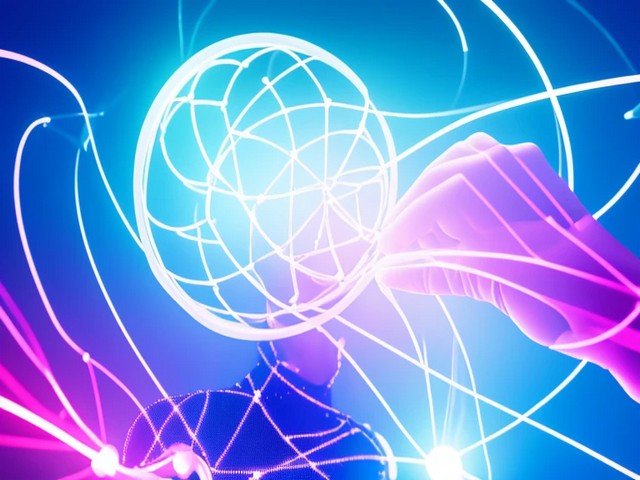
Human vs. Machine: Who Solves Better?
The application of AI in Maths has been quite revolutionary in the solutions provided for complicated mathematical issues. When looking at the prospects of AI, the reality of its capacity to surpass human intelligence starts to manifest the more one progresses. Intelligent and relentless machines are now offering solutions for problems that earlier needed learning of human mathematics.
Lift off – Maths AI
While Maths AI started with simple problems it has come a long way and now it is solving complex problems. AI systems that use algorithms that can ‘learn’ contain the capability to study large data sets and identify relationships that are beyond the capabilities of a human. I still recall that capability of solving complex problems with such ease which brings up the valid question as to whether human mathematicians will be of any use in the future.
Human Limitations
However, man as an intelligent being is not without his shortcomings spanning a few centuries. The decision-making skills in human beings are reduced by cognitive biases and emotions, and fatigue is an aspect that hinders efficiency. However, such weakness never affects AI since the systems work based on algorithms that portray logical reasoning. This has led some people to suggest that perhaps true problem-solving applications are better matched with mathematical problems in today’s data-intensive world.
AI’s Flaws
However, Maths AI is not without problems either. Risk management in AI systems is therefore directly proportional to the quality and amount of data used in training the AI systems. This means that inaccuracy of data results in producing wrong conclusions and decisions. In addition, reasoning differs from creativity and intuition, inherent in human cognition which, occasionally, contributes to a breakthrough.
A Controversial Balance
The war between Man and Machine as to which is better at solving is not yet over and done with. Of course, Maths AI is free from human bias; it is accurate, quick, and consistent; however, creativity, ethical values, and real-world settings come from individuals. The major problem is trying to achieve the right balance of using AI as an extension of human thoughts and not as a replacement for it.

The Ethical Dilemma: Can AI Replace Human Mathematicians?
Maths AI, which was once an idea from sci-fi is something that has become a reality that society has to deal with. The advancements in artificial intelligence have reached a point where it’s essential to ask: Quite appropriately, an interesting question that arises here is whether or not AI is capable of replacing human mathematicians. Unlike this question, it does not only reduce to the question of technological feasibility but also questions morality and the nature of intelligence.
Redefining Mathematical Discovery
Maths AI can also distinguish between numerical variables and Figures easily solve a mathematical equation and recognize a pattern that a human being would not easily notice. Nevertheless, doing mathematics involves an understanding of mathematical intuition, creativity, and concepts. Is it possible for Computational mathematics even with its inherent abilities to mimic the creativity of mathematicians?
Ethical Implications of AI in Mathematics
Maths AI is a departure that comes with dreadful ethical questions. In light of such efficiencies, it’s only reasonable to ask what is in store for human mathematicians. The policy considerations presented by a society in which experts may be replaced by machines must also be summoned into question: what becomes of our highest Capitalist asset, the human brain? Are we possibly selling human wisdom down the river by investing so much in AI?
Human vs. Machine: A Battle of Intellect
The argument extends beyond functionality to existential value in the case of AI in Maths. The human can approach and solve mathematical problems in terms of experiences and feelings that he/she has. AI, as we know, does not possess many human qualities and works on rationality and information. Such a differentiation might lead to the reduction of the diversity of possibilities in the solutions of mathematical problems and ideas, hence slowing down development.
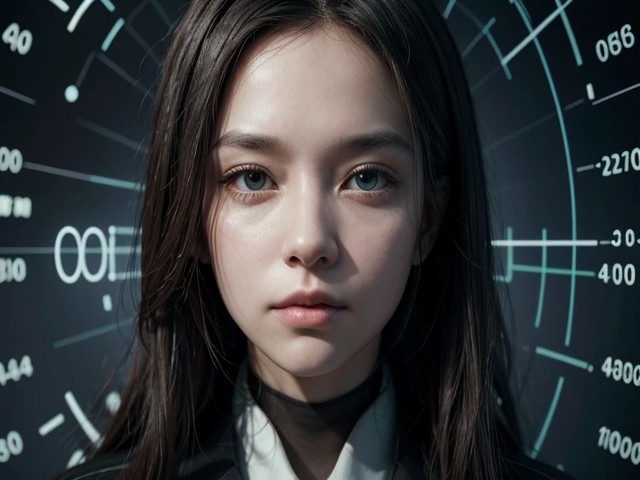
The Dependence on AI: A Double-Edged Sword
Current development in Math’s AI has made remarkable improvement in the solving of hard mathematical operations, solving them with the highest accuracy and in less time. Yet this industrious progress has its own paradoxes, and the question, familiar to fans of science fiction movies, is whether humanity is surrendering too much of the intellectual landscape to technology.
The Glamorous Precision of Math’s AI
Math’s AI can provide strange equations and even data analysis in very shorter time which may be required for a human. This efficiency has made it an invaluable tool in many fields such as finance, engineering and many others. But, as we become more reliant on such technology, we are inevitably left with blunted own problem solving capabilities. They give way to the culture of lazy thinking or what might be referred to as the cult of the quick fix.
The Risk of Intellectual Erosion
It might appear that incorporating Math’s AI into tech systems can be a good idea on the face value. However, if they rely on them too much, creativity is squeezed, and students do not have to think much about mathematics. What happens if the next generation can only solve problems with the assistant of an AI? Are we cultivating a generation, in which an idea is better executed than an individual, a plan is better implemented than man?
Ethical and Security Concerns
The use of Math’s AI also opens up ethical questions and security issues, for example, as a dependency. While using algorithms, one can apply different pre-established parameters which makes the result biases and thus disadvantages or wrong conclusions may occur. Furthermore, as tenders of sensitive data to AI solutions take higher ground, cyber threats become much more severe. But what guarantees can be given for the protection of the large volumes of information being processed by these systems?
The Balance of Power
As with many things in life, there is much to gain from Math’s AI but an equilibrium between the two is paramount. It has been suggested that while the use of the tools in the form of a partnership between humans and machines should be promoted rather than a subjugation to them to avoid the deterioration of our thinking faculties. These synergies are possible for such initiation that can spur innovation without the detriment of our cognitive endowment.
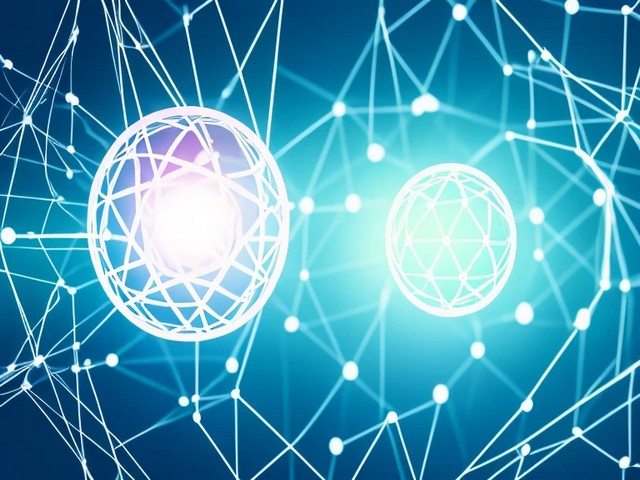
The Future of Maths AI: Utopia or Dystopia?
The Maths AI is transforming architectural thinking on problems but the influence on intelligence is bivalent in nature. Finally, the line between manual and automated decision-making gets thin as we apply new and complex algorithms to learning and working environments. The disconcerting reality is that, as great as it is that Maths AI helps solve problems at a faster and more accurate rate, it demeans the literal ability to do math.
The Unseen Consequences of Maths AI
Thus, the appearance of Maths AI implies several ethical and intellectual problems. Such intricate calculations are carried out by artificial intelligence hence weaker critical thinking competencies are likely to emerge among learners and professionals. Given our growing reliance on these technologies, the prospects of a society where the intellectual abilities of human beings are simply dismissed become even more real.
Utopia or Dystopia: The Tipping Point
Where Maths AI paints a beautiful picture of unexplored scientific advancements and much better problem-solving abilities, what awaits us might be an oppressive dependence. It is very hard to have a proper ratio between the usage of AI and the stimulation of people’s intellect. The future of Maths AI is therefore unclear, depending upon how we deal with all these possibilities.
Conclusion: The Paradox of Progress
Maths AI embodies the paradox of progress: it opens the door to a new vision of the world where humanity might progress or returns us to the state of helplessness that deprives us of personal thinking. The further development of Maths AI will thus depend on the common-sensical approach which equally respects both human reasoning and computational rigor. The question remains: will we get a world of fantasy as described by Plato or end up in a dystopian world as described in a book titled black mirror?

